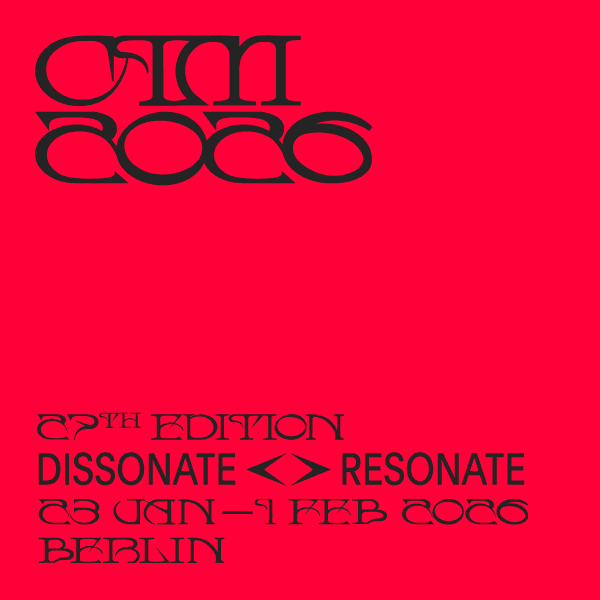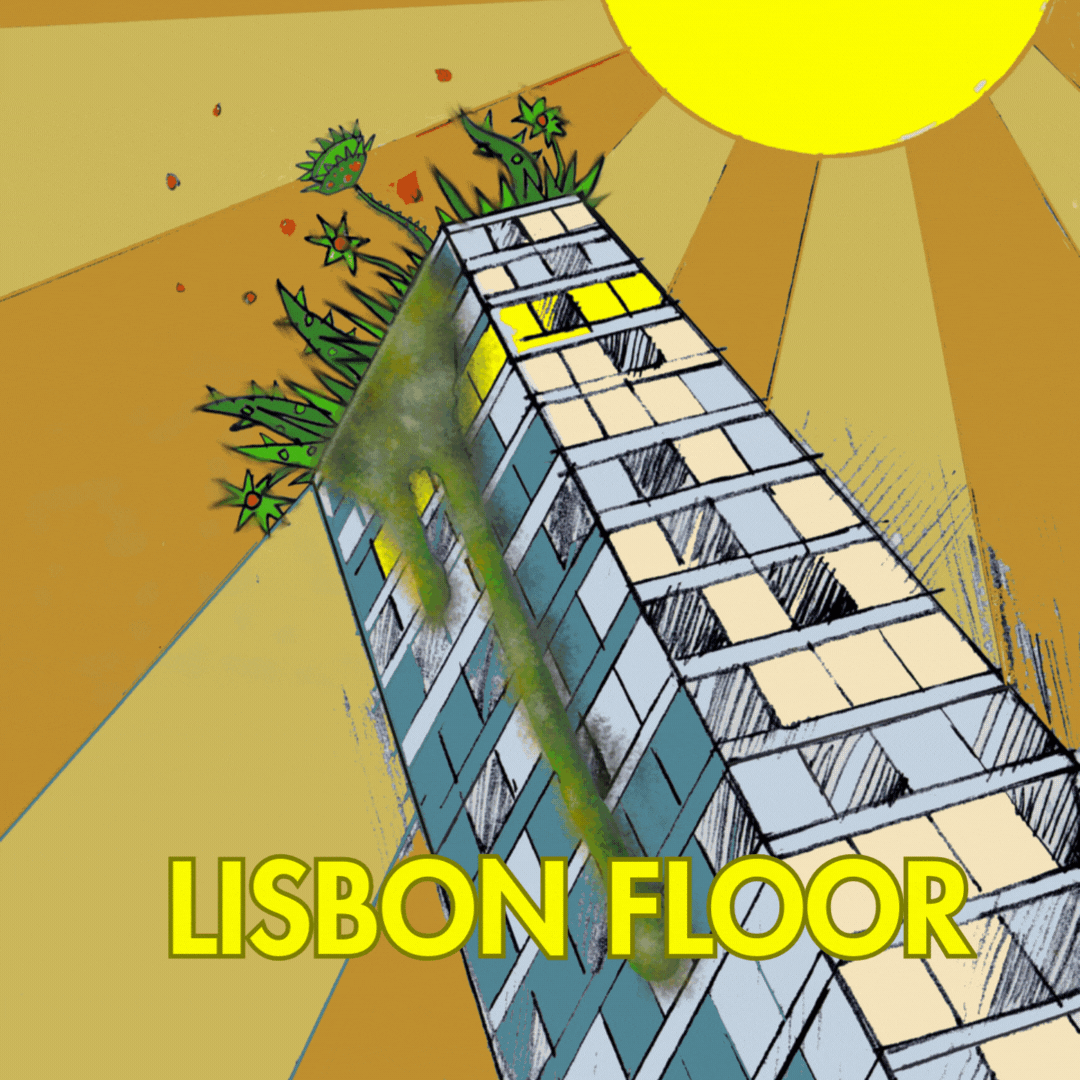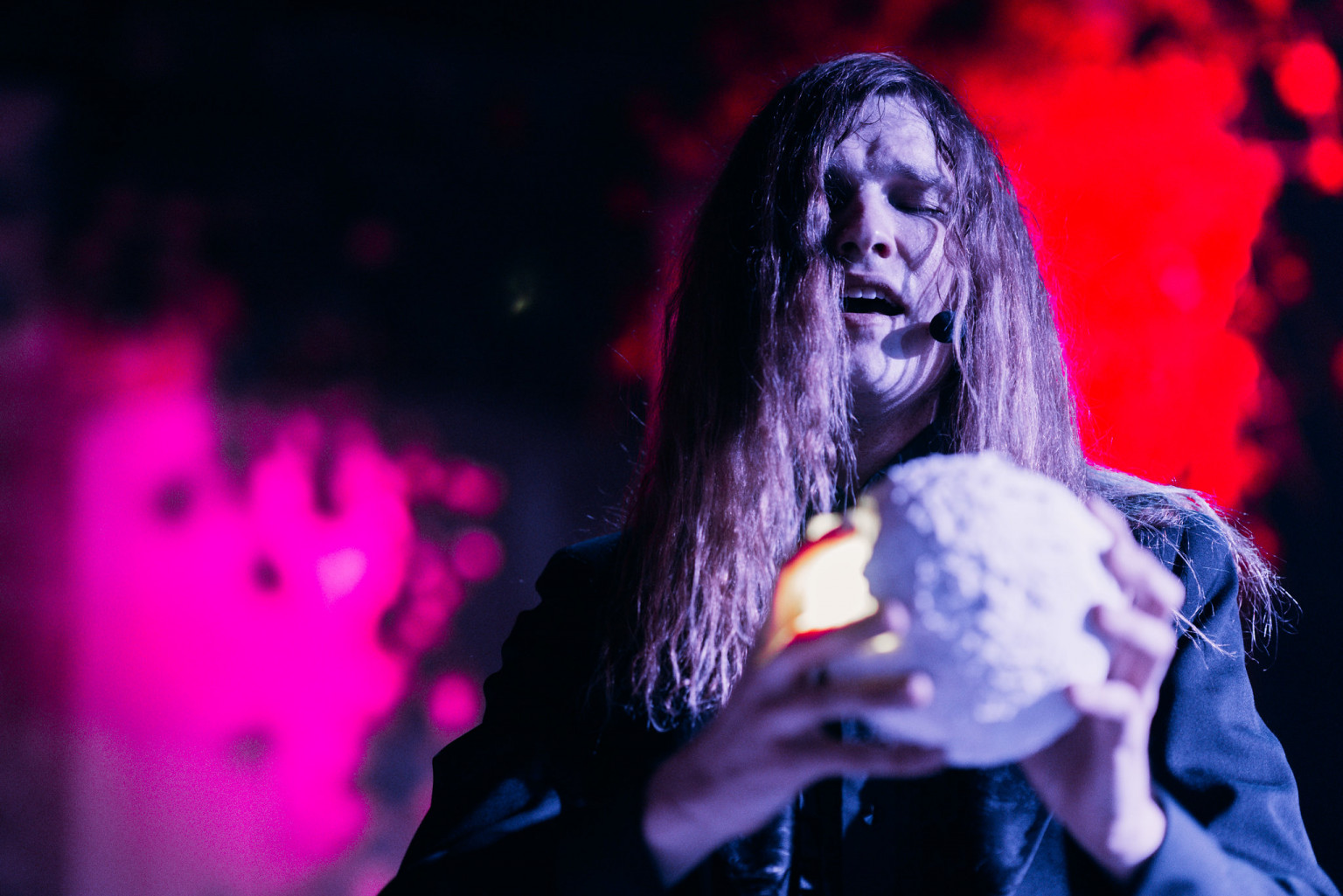
Tallinn Calling: When Jazz Strikes a Nerve
»Have you really never been here before? I’ve played here many times. First time was in 1998. I was still a student at the conservatory,« says Danish drummer Kresten Osgood as he continues swimming in the rooftop pool on the eighth floor, overlooking Tallinn’s church spires, orthodox domes, and smokestacks. The city, one of Europe’s best-preserved medieval towns and a UNESCO World Heritage Site, smells of Estonian cedar from the saunas and bursts with music festivals.
Two actors in stiff suits recited lines about Danske Bank, collapse, and the moral downfall at the altar of the stock exchange
Last night, the Estonian-Danish composer and saxophonist Maria Faust performed a concert version of the theatre piece Rahamaa, or Moneyland – the talk of the town, though impossible to get tickets for. Faust’s group The Economics – consisting of a drummer and three horns – moved like a procession through the dark: marching drums, wailing saxophone, and a trumpet sounding like an open wound, while two actors in stiff suits recited lines about Danske Bank, collapse, and the moral downfall at the altar of the stock exchange.
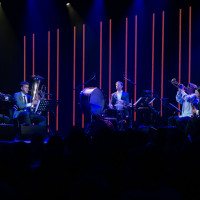
»You probably didn’t understand what they said because it’s in Estonian, but I’ve seen the play. It runs for three and a half hours and goes through the entire fraud scandal. Maria can tell you more. I’ve got a masterclass in a bit,« Osgood says, stepping out of the 30-degree water.
Estonian Modernism and Sonic Exorcism
Once a Soviet satellite, Estonia is now an independent nation oriented toward the West. With only 1.3 million inhabitants, its past still lingers. In the border town of Narva, over 95% speak Russian, and about 320,000 Estonians have Russian as their mother tongue.
He plays distorted violin, walks among the audience with a glowing, coconut-like orb, and offers a prayer
The Jazzkaar Festival, founded in 1990, takes place at Fotografiska Tallinn and Von Krahl in the vibrant Telliskivi district. This year’s opening work, Marginalia and Dividends, performed by pianist Kristjan Randalu, wove into the miniature works of celebrated composer Jaan Rääts from 1981 – like cryptic diary pages where Estonian modernism breathed in asymmetrical rhythms, mirrored by Norwegian guitarist Eivind Aarset’s flickering, electric haze.
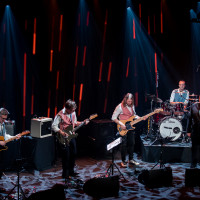
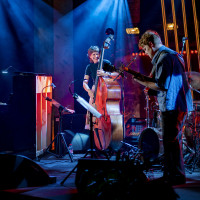
Meanwhile, the guitarists of Keelepeksjad, dressed in colorful cocktail-band vests, blend surf rock with relaxed lounge jazz. »Mafia Boss« bubbles with cheeky self-irony under poet and singer Jaan Pehk’s gentle yet unwavering voice.
Some say Estonians are introverted – and it shows. The band Anemone, who started with Nirvana covers, avoid eye contact with the audience, while Anett Tamm’s light vocals float in dreamy late-night jazz. Kertu Aer, Norwegian bassist and winner of Estonian Young Jazz Talent 2024, performs with her quartet in wordless but narrative compositions about self-acceptance, Murakami, and insomnia – dreamy and abstract.
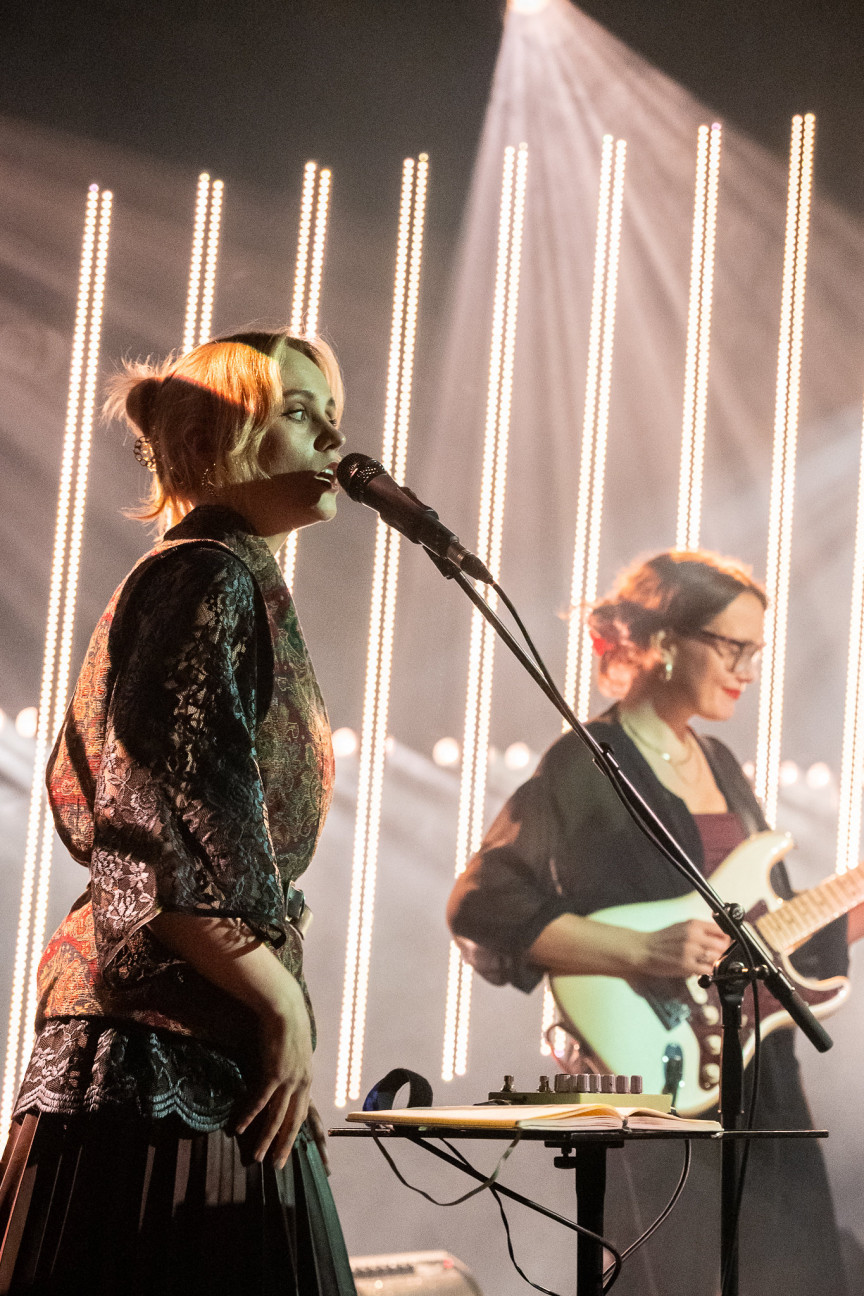
Tuxedo-clad Kristjan Kannukene draws on Estonian poets and the Bible. He plays distorted violin, walks among the audience with a glowing, coconut-like orb, and offers a prayer. The concert ends with a skewed, bluesy indie song. It’s introspective.
She expresses sorrow over her home country’s situation: »America, this song is for you«
But when the concerts move into private homes, Estonians open their doors wide. Thirty people sit close together on sofas and chairs, listening to Kadri Voorand, who, before her celestial rendition of Lennon’s »Imagine«, says: »Have a safe journey. I’ll keep an eye on the time for you.« Then come voice distortions, folk-inspired violin, and philosophical reflections: »Music makes conversations between the living and the dead possible.«
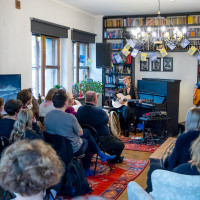
Lakecia Benjamin from New York makes no apologies for filling the room with her golden outfit and raw saxophone. A five-time Grammy nominee, she declares Tallinn »the most beautiful place I’ve ever seen,« and this is about power. From the stage, she expresses sorrow over her home country’s situation: »America, this song is for you,« she says before a saxophone scream leads into »My Favorite Things.«

The same unrelenting energy marks Kresten Osgood and his drum collaborators – Germany’s Christian Lillinger and Lithuania’s Arkady Gotesman.
It’s ritualistic – like witnessing a kind of sonic exorcism where anything can happen
Surrounded by nearly as many plants as drums, the Dane incorporates both into his performance. Maria Faust joins the trio with searing phrases and a solemn tone that both pierces and uplifts the soundscape. She breathes air into the heavy drum universe, offering a sharp, melodic contrast. It’s ritualistic – like witnessing a kind of sonic exorcism where anything can happen.
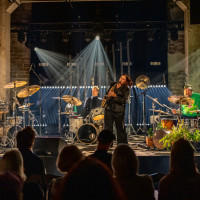
Incense, Ravers and Rhythm: A Musical Journey Through Tallinn
A musicologist leads a tour of Tallinn’s vanished clubs and squares, where neo-hippies, punks, and ravers gathered after the fall of the Soviet Union in 1991. In the city’s cellars, a raw, hypnotic sound emerged – shaped by both the past and dreams of the new.
At Tallinn’s Depeche Mode Bar, visitors are immersed in synth waves and cocktails named after songs. Music videos flicker on the walls from a time when melancholy and machines went hand in hand.
A musicologist leads a tour of Tallinn’s vanished clubs and squares, where neo-hippies, punks, and ravers gathered after the fall of the Soviet Union in 1991
On Easter morning, women and priests walk in song around the onion-domed Alexander Nevsky Cathedral. The polyphonic chant – and incense – smells of time and tradition.
Estonia doesn’t have a big band tradition, so it’s a major event that Karmen Rõivassepp has brought the Aarhus Jazz Orchestra. The vocalist, who has lived in Denmark for years, was named Musician of the Year in Estonia. Conductor Nikolai Bøgelund calls John Riddell’s drum solo »badass«, and the Estonian audience seems to enjoy the directness. But when trumpeter Jakob Sørensen raises his horn to his lips and plays, language seems to dissolve.
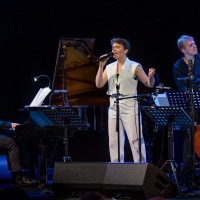
Later, Bill Laurance and Michael League – known from the Grammy-winning collective Snarky Puppy – transcend genres and borders with just bass, Turkish baglama, and piano. And a Turkish song about two birds in lively conversation on a branch.
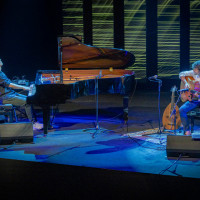
Laurance and League join – alongside some Aarhus musicians and New York guitarist Gilad Hekselman – a jam session in a record store. Mikk Kaasik, who this evening wins Musician of the Year, has something to show at the piano. Even during jam sessions like this, one senses that jazz in this country is an existential matter – not just entertainment.
The language bends and twists somewhere between rebellion and tenderness, as the drummer carves a solo into a chanson and transforms it
Even Jacques Brel’s »Les Marquises« doesn’t sound like a cover but a nerve-filled confrontation when Poetic Ways drag various French icons through jazz’s complex alleyways. The language bends and twists somewhere between rebellion and tenderness, as the drummer carves a solo into a chanson and transforms it.
Poverty Sounds Like a Hollow Cough
Finally, there's some time with the busy Maria Faust.
»I’m from Saaremaa – a small island that once belonged to Denmark. The town was founded by Magnus, the Danish king’s brother. He had a serious gambling problem and was exiled there. But Estonians were seen as wild back then, so he never dared leave his castle. He sat there for decades,« laughs Faust, who studied classical music and conducting, and describes finding her footing in Copenhagen’s jazz scene »like walking straight into a wall.«
»There’s too much entertainment and too little music that reflects the world«
Faust sees art as a mirror of society: »Art can criticize and awaken people, but it doesn’t have to say what’s right or wrong – it can offer new perspectives. There’s too much entertainment and too little music that reflects the world.«
Her major work on post-Soviet wealth and oligarchs has given her wings. Rahamaa was nominated for 11 Estonian theatre awards and won five, including Best Original Music. With her group The Economics, she has 40 more performances scheduled this year.
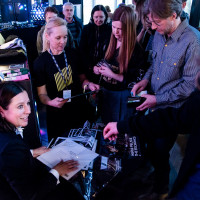
»The play starts like this: ‘It all happened because we were so poor.’ It’s a Greek tragedy with seven death scenes. All about greed. About how people sacrifice love, family, and dignity for money. But the tragedy isn’t just fictional. It echoes through both Danish and Estonian reality. It’s our shared history, though people rarely talk about it in Denmark. It’s too embarrassing. And for us in Estonia… Well, maybe we were hit even harder. We were so greedy we sold ourselves. People were exploited and destroyed. One took his own life. Danske Bank had many clients trading weapons – the heaviest, most deadly ones. The bank’s Estonian branch, Ariel Team, looked a certain way – white teeth, specific suits, briefcases, very expensive watches, smelling of vodka and costly perfume. Danske Bank played a major role in making the world an even worse place – wars, terror, hunger... you name it. They laundered hundreds of billions for those people,« Faust says.
»We were so greedy we sold ourselves. People were exploited and destroyed. One took his own life«
»The piece contains a strange, dark humor. The characters are strong, shaped by both anger and hope. Poverty sounds like a hollow cough – but also like will and belief in freedom.«
Despite its artistic and political weight, the work won’t come to Denmark: »From what I’ve heard, the two businessmen who promised to support the project received serious warnings and deemed it too risky.«
The Sound of Silence
In the middle of a forest, in the coastal village of Laulasmaa – 35 kilometers west of Tallinn – sits a white building dedicated to Estonia’s great composer Arvo Pärt, who found music in silence long before silence became a luxury. Once, his archive was stored in a garage. Today, light streams through the windows. Scholars study in Pärt’s library, and the complex includes a concert hall, chapel, and café. Arvo Pärt’s son, who looks just like his father, is happy to pose for photos. Pärt himself lives next door.
This year, Pärt turns 90. And the last thing one sees when leaving Lennart Meri Tallinn Airport is an exhibition about the composer who found the eternal in the simple. And maybe this is where Estonia finds its voice: In the tension between protest and poetry, between the shadows of the past and the light of the future, between jazz’s wild exorcisms and Pärt’s silent prayers. A musical nation that doesn’t make noise to be heard – but whose voice lingers in your body long after you’ve flown home.
Jazzkaar Festival, Tallinn, April 20 – May 1
English translation: Andreo Michaelo Mielczarek. Proofreading: Seb Doubinsky
